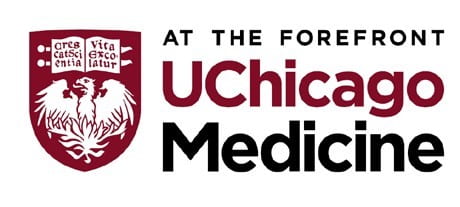Genome Prescribing System (GPS)
The Genomic Prescribing System (GPS) is a novel web-based portal used by physicians which displays interactive, patient-specific, pharmacogenomic results in the form of succinct, electronic clinical consults – all instantaneously available in real time during patient care.
Patient-specific results are provided not as raw genetic data, but as a patient-tailored synopsis of the information translated into clinical meaning, and including prescribing recommendations and suggested alternative medications.
PHYSICIAN PORTAL
GPS: a novel, interactive, patient-specific pharma-cogenomic portal
Web portal
Genomic Prescribing System (GPS) is a web-based portal for physicians that provides real-time patient-specific pharmacogenomic results and prescribing recommendations.
Risk Levels
The GPS displays medications and pharmacogenomic results, categorized using a traffic light signal, indicating the likelihood of effectiveness or risk of adverse effects.
Concise Guideline
Providers can access medication summaries with clear and concise information, designed to be read in 30 seconds or less.
Primary Literature
The GPS allows access to primary literature sources for further details on the summaries.
Let’s find that right drug, at the right dose, at the right time.
Through meticulous exploration and in-depth analysis, the CPT is unraveling the intricate relationship between genetic variability and drug responses, paving the way for a new era of personalized treatments. Our journey in translational genetic research is marked by a relentless pursuit of insights that hold the potential to revolutionize healthcare on an individual level.
As we navigate this intricate realm of scientific exploration, the CPT remains committed to advancing the boundaries of knowledge and pushing the frontiers of genetic research. With every stride forward, we solidify our position as leaders in the field, armed with the acknowledgment of our peers and the realization that our efforts are shaping the landscape of healthcare in profound and meaningful ways.


Personalized Medication Presented in a User-Friendly Visual Format.
The GPS is designed to be convenient to use, with clear and consistent images and wording, so that pharmaco-genomic information can be easily integrated into clinicians’ workflow. Ultimately, the GPS enables physicians to make patient-specific treatment decisions, improving patient outcomes.
Level of Evidence
The home page for each patient displays current medications, pharmacogenomic results for those medications, levels of evidence, and alternate medications. The GPS displays levels of evidence next to each medication, either a 1, 2, or 3. The strongest evidence is given a Level 1 designation; likewise, evidence that is not as strong is given a Level 3.
Traffic Light System
Information for each medication is displayed as a traffic light signal – a green light means that a medication is likely to work well for that patient, a yellow light indicates that the medication may have undesirable outcomes for the patient, and a red light signals that the patient is likely at a significant risk for toxicity or non-response for that medication.

<30sec
All Drug Descriptions Are Designed to be Read Within 30 Seconds.
Use GPS to Guide Informed & Precise Medical Decisions
For Patients
Take charge of your health by requesting your physician to utilize our portal, ensuring the most effective and safe treatment options tailored to your unique genetic profile.
For Physicians
Join our groundbreaking initiative, and learn more about how patient-specific and clinically meaningful pharmacogenomic web service can be a part of your medical practice.
For Research
Inquire how our web-based portal can be incorporated as a part of oncology care pipeline and lead the future of precision medicine and optimal cancer care.
Others
Are you ready to embark the potential of the platform to improve precision health care? Contact us today and unveil how GPS can revolutionize patient care.
Join us on this exciting journey of improving patient safety, efficacy, and overall well-being through personalized medicine.
Phone
(773)-753-1200
Open Hours
Mon – Fri: 9:00 AM – 4PM
Address
5841 South Maryland Avenue, MC 2115
